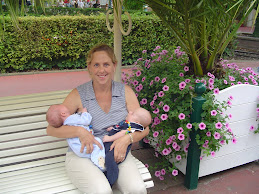Yeah, shit, I do manage do get myself into it, don't I?
As the mayor started to mock us and tell us we had no right to question his authority, I finally stood up and said/asked, in my American accent,
"This is ...uh ...a democracy?"
All of a sudden realising I had been raised on American values and wasn't exactly sure, I looked to the other citizens for confirmation.
Yes, as it turns out. A federal, parliamentary, representative democratic republic. I just checked.
The United States of America is also a representative democracy, which is a kind of republic, just in case anyone cares.
Australia is also a democracy (parliamentary democracy, I checked). Phew.
But I'll be the first to admit that I consider freedom of speech a first amendment right. Which is an American thing.
But shit, the nation that bred Julian Assange has got to have that same belief, right?!
Actually no, not in any official constitution or statutory bill of rights, but yes, an accepted right accorded by the Australian government.
You don't believe me? Google it.
Does this mean that outraged Muslims in Sydney have a right to violent protest? No. It means they have a right to be outraged. It means they have a right to protest.
But I for one would be really careful before I commit any crimes in a country of which I don't even have the privilege of citizenship.
Out on your bottoms, mates!
Does this mean that people shouldn' t be using the internet to spread their opinions? I don't think so. It was the internet messages that alerted the police in Sydney to what was happening. Stifle dissent, stifle freedom of speech, and the government no longer knows the will of the people.
To me, it unfortunately also means that the video that has sparked these violent ant-American protests worldwide, is protected by freedom of speech. Freedom of speech doesn't censor stupid.
Funny though, how noone wants to censor things they agree with, or that talk about how great their government is.
I'm just saying.
Still, I haven't written an anti-Muslim movie and posted it on the internet. I mean, DUH!
I haven't even revealed any top government papers.
I write a blog which is averaging 7 page views per post last week. (Thanks Mom. Hope you like the pictures, Monica.)
I'm just saying.
Yeah, I guess I am just saying.
Is that really a crime?
------------------------------------------------------------------------------------------------------------------------
(What follows was just meant as research but...in case anyone DOES care....I left it in by accident at first and now just leave it with this short explanation....see, sometimes I DO actually research before i write something!!)
Or as Voltaire has been paraphrased,
"I disapprove of what you say, but I will defend to the death your right to say it."
http://www.ourcivilisation.com/cooray/rights/chap6.htm#6.1
On a more practical plane, freedom of speech serves many functions. One of its most important functions is that decision-making at all levels is preceded by discussion and consideration of a representative range of views. A decision made after adequate consultation is likely to be a better one which less imperfectly mirrors the opinions, interests and needs of all concerned, than a decision taken with little or no consultation. Thus freedom of speech is important at all levels in society. Yet it is most important for government. A government which does not know what the people feel and think is in a dangerous position. The government that muzzles free speech runs a risk of destroying the creative instincts of its people.
Freedom of speech is also important to governments because when criticisms of a government are freely voiced, the government has the opportunity to respond to answer unfair comments and criticisms about its actions. On the other hand, when freedom of speech is restricted, rumours, unfair criticisms, comments and downright falsehoods are circulated by word of mouth. These have a habit of spreading across the length and breadth of the country through conversation and surreptitiously circulated writings. The government is in no position to answer these views, because they are not publicly stated. It is in a government's interest to have criticisms in the public arena where it can answer its critics and correct its mistakes. The government generally has access to electronic and printing communication far in excess of individuals and groups. It is able to present its view only if the opposing views are in the open and known.
Finally, the freedom of speech is the single most important political right of citizens, although private property is required for its operation. See further chapter 8. Without free speech no political action is possible and no resistance to injustice and oppression is possible. Without free speech elections would have no meaning at all. Policies of contestants become known to the public and become responsive to public opinion only by virtue of free speech. Between elections the freely expressed opinions of citizens help restrain oppressive rule. Without this freedom it is futile to expect political freedom or consequently economic freedom. The sine qua non of a democratic society is the freedom of speech.
Freedom of speech involves toleration of a great deal of nonsense, and even of matters which are in bad taste. There are those, among them notably Justice Douglas of the American Supreme Court, who have argued for near absolute freedom of speech and against the restrictions based on many of the common exceptions. In Roth v US 354 US 476 (1957) a case about obscenity, Justice



No comments:
Post a Comment